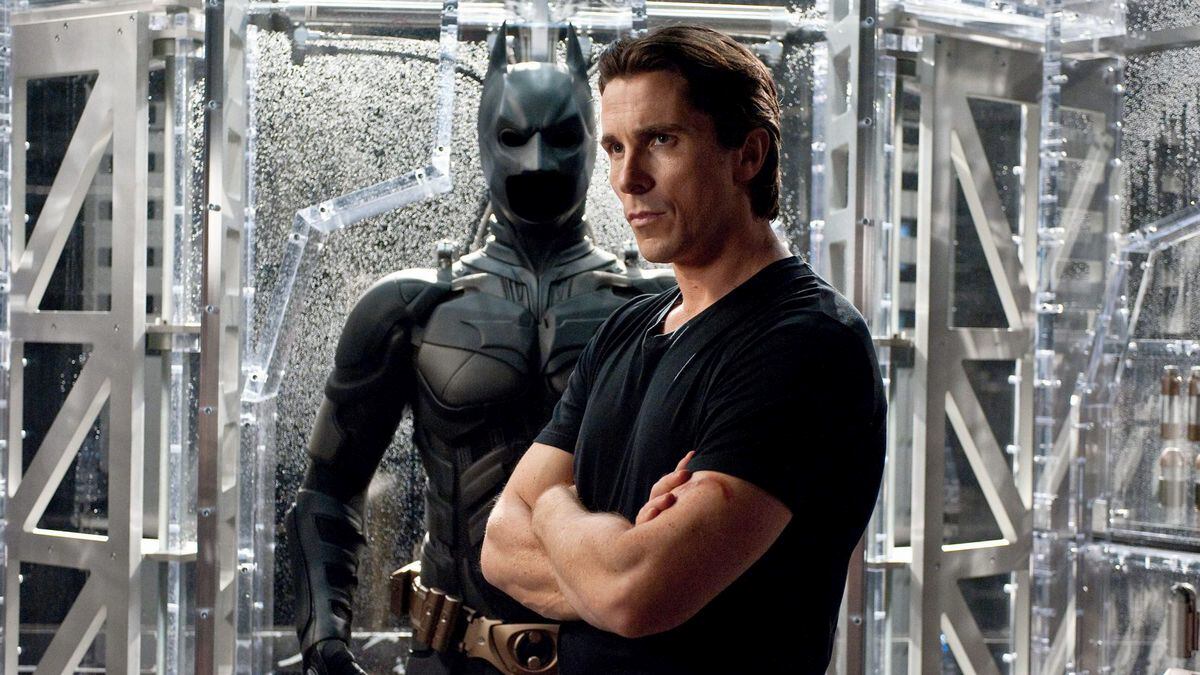In director Christopher Nolan’s The Dark Knight Rises, Bruce Wayne/Batman (Christian Bale) is crippled, jailed and forced to watch terrorists ransack Gotham City. It’s a brutal sequence best summed up by Bane (Tom Hardy), who declares that he prefers torture not of the body, but of the soul.
Yet despite the film’s unsparing vision of human cruelty, Tom Shone—author of The Nolan Variations: The Movies, Mysteries, and Marvels of Christopher Nolan (Knopf, $40, 400 pages)—thinks that even at his most cynical, Nolan yearns for a rush of optimism.
“I think he believes that heroism is kind of possible, but he starts from a position of deep skepticism—like, ‘Prove it,’” Shone says. “He wants to find heroism, he wants to find selflessness, but he’s just extremely suspicious about most of the examples of it we see.”
Among the numerous Nolan books, The Nolan Variations stands out by enlisting him as a collaborator. Even as the uber-private filmmaker prepped Tenet (which he would later push Warner Bros. to release midpandemic, before vaccinations were available), he answered Shone’s questions, offering an unusually intimate glimpse into his personal and professional life.
Much of the book is devoted to the Dark Knight trilogy, which ended 10 years ago today with The Dark Knight Rises. In honor of the film’s anniversary, Shone spoke to WW about how Nolan reinvented Batman, transforming a superhero franchise into a heartfelt meditation on the allure of despair and the necessity of hope.
The trilogy began with Batman Begins (2005), which Shone describes as a production with “difficulties.” “There was a sense that I got from [Nolan] that there was a fair amount of wastage on that film—things they built that they didn’t use,” he says.
Despite the challenges Nolan faced, Shone calls Begins the most “emotionally resonant” of the three films. That’s a credit to Nolan and Bale, who establish Bruce Wayne as a defiant idealist whose true superpower is his belief that for all its crime and corruption, Gotham City isn’t a lost cause. “Give me more time,” he declares. “There are good people here.”
In The Dark Knight (2008), that conviction is assaulted by the Joker (Heath Ledger), who dreams up a violent “social experiment” to prove that “everyone is as ugly” as he is. Ledger’s performance won him a posthumous Oscar—and terrified Nolan, according to Shone, who attributes the Joker’s dialogue to Nolan’s brother, screenwriter Jonathan “Jonah” Nolan.
“The Joker is all Jonah,” Shone says. “Which maybe actually explains why [Christopher] Nolan might be more frightened of him. It didn’t come from him, if you know what I mean. Instead, it was this unruly creation that got handed to him.”
If The Dark Knight shakes Bruce’s faith in humanity, The Dark Knight Rises nearly shatters it before reaching a jubilant conclusion: Bruce finding peace and love with Selina Kyle/Catwoman (Anne Hathaway). A happy ending was a daring move for Nolan (given how some moviegoers had fetishized the carnage of the previous films), but Shone says it didn’t sit right with him.
“It’s unusually up, let’s put it that way,” he explains. “I think if there had been any thought in his mind that there might be a fourth or a fifth [film], it wouldn’t have ended like that. But I think his warmth toward that franchise as a whole as he took his leave of it, that was the reason for the warmth of the ending.”
When The Dark Knight Rises was released on July 20, 2012, that cinematic warmth was meant with chilling reality. At a midnight screening of the film in Aurora, Colo., a gunman killed 12 people and wounded 70 others.
In a statement released the next day, Nolan said, “The movie theater is my home, and the idea that someone would violate that innocent and hopeful place in such an unbearably savage way is devastating to me.” (Whether by coincidence or design, his next film, Interstellar, was devoid of firearms.)
The devastation that day in Aurora will always matter more than how a movie ended, but it cast Nolan’s commitment to a hopeful finish for the trilogy in a prescient light. Life would always have plenty of tragedy without him egregiously adding to it by leaving off with Bruce Wayne isolated or dead.
Nolan’s films appear to share Bruce’s belief that even when a better world seems beyond reach, we have a moral obligation to fight for one. It makes sense—as a father of four children inheriting a planet in dire need of new heroes, Nolan probably doesn’t have the luxury of being purely pessimistic about the future.
“You’re not finding chunks of his life story in [his films], but the themes mean something to him as a person, as a man, and as a filmmaker,” Shone says. “And a filmmaker makes art from those things.”
